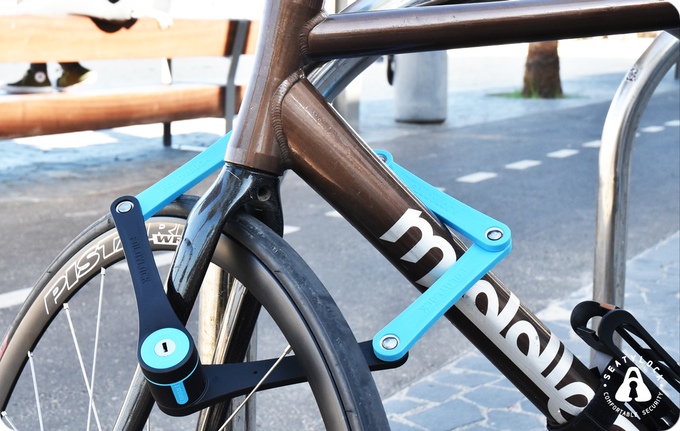Close
Miss Havisham going up in flames in grainy blank
and white in a BBC adaptation of Great Expectations was something I had to wait
for as the novel unfolded week by week in its allotted TV spot in the schedules. There were no short cuts, you had to wait.
How different the present! Having recently discovered that I had access
to series and films via one of my subscriptions I have binge watched the first
series of The Man in the High Castle – the story of what might have happened if
German and Japan had been the victors in World War Two.
In this version of reality, America has been
divided between the Germans on the East Coast and the Japanese on the West,
with a lawless Neutral Zone in between.
The production values of the series are high
and the detailing of each scene is replete with intelligent and satisfyingly
visual suggestions as to how the reality might have worked out.
The mixture of plots and sub plots using politics,
espionage, deception and brutality to further the story line; the Resistance
and its struggle against totalitarian governments; a love story; the clash of
cultures – all of these elements can be found in any number of dramas, the ESP
of this series is the injection of a disturbing element of Science Fiction.
A key plot device in the action of the series is
played by a series of films. These films
seem to show a different reality, one in which the Axis powers did not win the
war and our version of the Allied Powers being triumphant is the subject of the
films. These films are being collected
by the eponymous Man in the High Castle who may, or may not be an ageing
Hitler.
There are hints in the episodes that suggest
that there might be parallel universes and that somehow or other elements from
these parallel universes are leaking into the reality of the series: either
that, or the whole 10 episodes of Series 1 was an elaborate dream in the
Japanese Trade Minister’s mind! As there
is a Series 2 and 3(?) I don’t think that device can be used to justify another
20 episodes!
As the series is set in the 1960s there are
technological elements that jar, including the appearance of a German
supersonic ‘rocket’ plane which has the delta wing formation of the late
lamented Concorde. The aircraft set looks
very impressive on the ground, but I found it singularly unconvincing in
flight, an odd glitch in otherwise excellent CGI. There are also trains that use a magnetic
drive – these things are anachronistic for the 1960s and might therefore
strengthen the supposition that someone is able to travel between the parallel
universes and take technology from a ‘future’ world or a parallel but more
advance one and use knowledge to boost technology in the reality of the series.
I have just discovered that I have access to
the ten episodes of Series 2 – so that’s another day of my life given over to being
hooked to the screen of my computer!
The acting in the series is, for the most part,
convincing and enjoyable to watch. The
basic premise of the plot it interesting and the production professional. The script is sometimes indulgent and philosophical
profundity can be signalled a little too obviously, but the action is engaging
and such attention is given to the appearance of things that I am convinced and
satisfied.
Obviously, there are a number of questions that
have been posed in this first series that might be addressed in the
second. I can’t wait to find out. And I don’t have to, all the episodes are
waiting for me just to click the mouse and enjoy!
In the same way that my typing for this blog is
often displacement activity from doing my Spanish homework, so too is my choice
of topic. Much though I enjoyed watching
the series above, there are more pressing things to talk about than an old TV
series. Like, for example, the present
political situation in Castelldefels and Catalonia.
The election in Catalonia is less than a month
away and the political parties are gearing up for the fray. One television station has taken to referring
to the ‘Constitutional’ parties i.e. PP (Hard, corrupt right); C’s so-called ‘centre
right’ but in reality, hard right as well, subsidised by business and sluttish
in their approach to power; PSC (the Catalan version of PSOE, the so-called ‘socialist’
(sic.) party that has aligned itself with the right and is opposed to Catalan
independence.) Then all the other
parties are lumped together under the Independent label as if it is opposed to
the concept of constitutional, rather than the reading of constitutional that
has been made by the other parties.
According to the latest poll, the veracity of
which I cannot vouch for, the figures show that the two ‘sides’ are fairly
equally matched with neither side able to gain an overall majority. The balance of power, according to this poll,
will be held by the Catalan version of the left wing Podemos, which has
declared itself opposed to independence, but in favour of a binding referendum
about independence.
The ruling (corrupt and corrupting) party of PP
stands little chance of gaining more than 8 or 9 seats in Catalonia as they are
cordially despised as crypto-fascist and anti-Catalan. PP put their hopes in the sluttish C’s party
which is headed by a photogenic power-hungry Catalan (allegedly) whose party
was formed specifically to stop Catalan separation and was funded by big
business and who once posed nude for an election poster to show that he had
nothing to hide! This apology for a
party stands to gain the most in the elections.
I hope that this is not true, and Toni assures me that it won’t happen,
though I am not as sanguine as he. The
traditional party of left wing opposition is PSC, the Catalan part of PSOE,
unfortunately their position has been totally compromised by their national dalliance
with PP to get a taste of power. The
fact that the word ‘Socialist’ forms part of their party’s title should be a
standing condemnation of their actions: PSC is a party without a soul and
without an ethic. They have shared a
platform with PP and C’s: they have marched with PP and C’s; they have voted
with PP and C’s. In some ways it would
be fairer to call PSOE/PSC power sluts rather than the traditional political
sex workers of C’s. Whatever, they have forfeited
their right to my vote.
Which leaves my choice on the, presumably, ‘unconstitutional’
side of the political debate! But my
thoughts about the parties which comprise this element of Catalan politics can
wait for next week.
Lunch was from our usual takeaway restaurant in
Castelldefels and was well up to standard, though the owner of the restaurant urged
me to look at the rotisserie where an entire suckling pig was being
roasted. It looked delicious and only
cost 100 euros! How do they do it for
the money? I think that the test of
something cooked like this is that you should be able to cut the meat up with
the side of a plate! As this beast was
supposed to feed eight it means that the individual portion would only cost 12
euros per person – which, thinking about it seems like good value, or at least
worth it!
The chicken that we actually had, while
perfectly acceptable, was not really as spectacular as that which I left turning
in the heat.
At least I can live with expectation!










